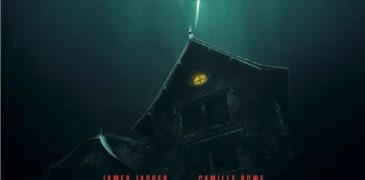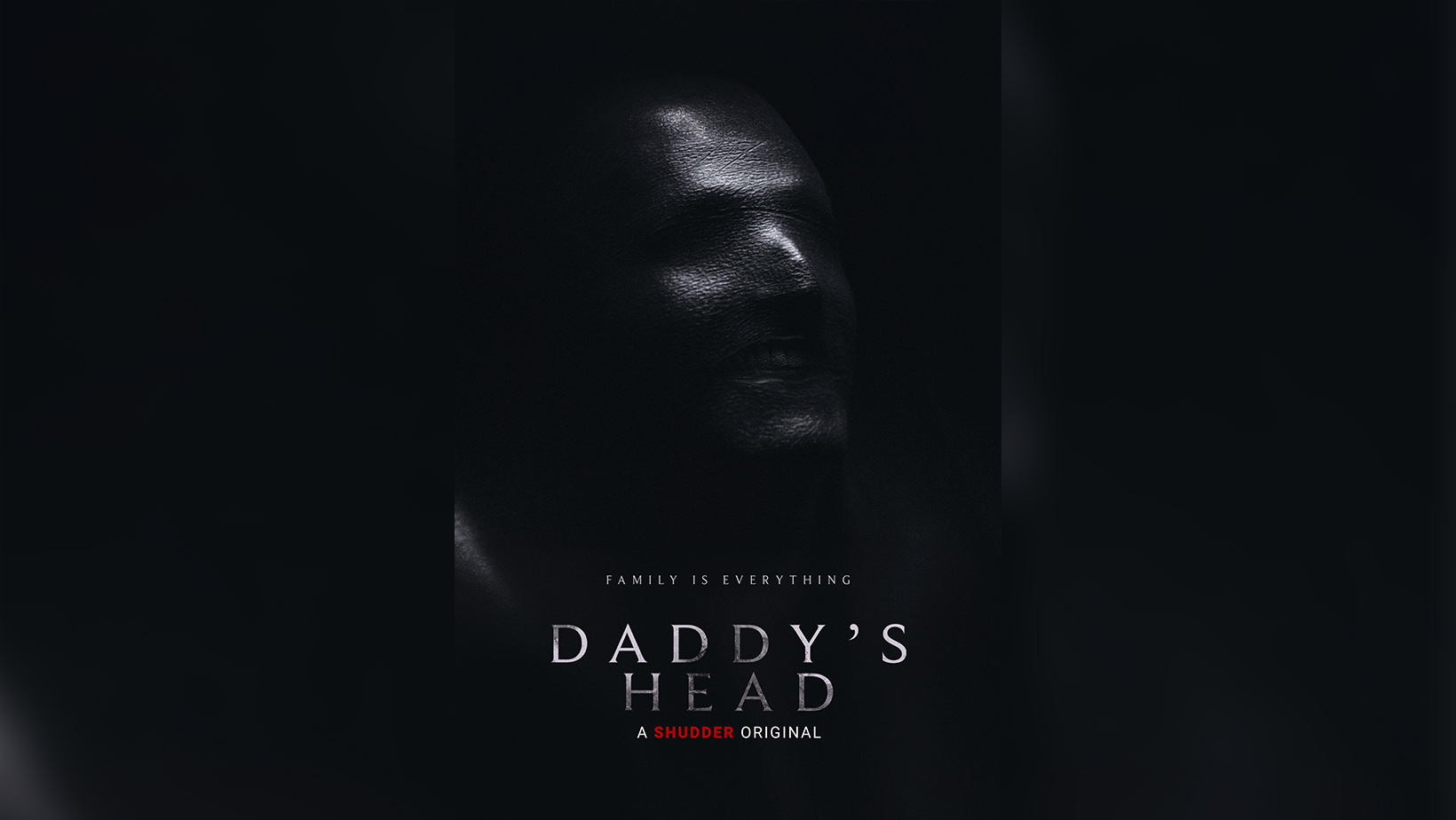
Taking grief to a deeply familiar level and revealing its relentless presence, Benjamin Barfoot delivers a sophomore feature that cements his status as one of the decade’s most promising horror directors. More than just an atmospheric exploration of mournfulness, Daddy’s Head evolves into a poignant tale of two afflicted individuals who find solace through their shared struggles—because, as always, misery loves company.
Despite its seemingly lighthearted title, the film is steeped in sorrow as the characters confront situations for which they are utterly unprepared. A house that was beginning to rebuild is shattered when Isaac, played by Rupert Turnbull, loses his father James (Charles Aitken), shortly after his mother died. Left in the care of his stepmother, Laura (Julia Brown), Isaac and Laura find themselves isolated in a remote house deep in the woods, fueling their grief and deepening their sense of isolation.
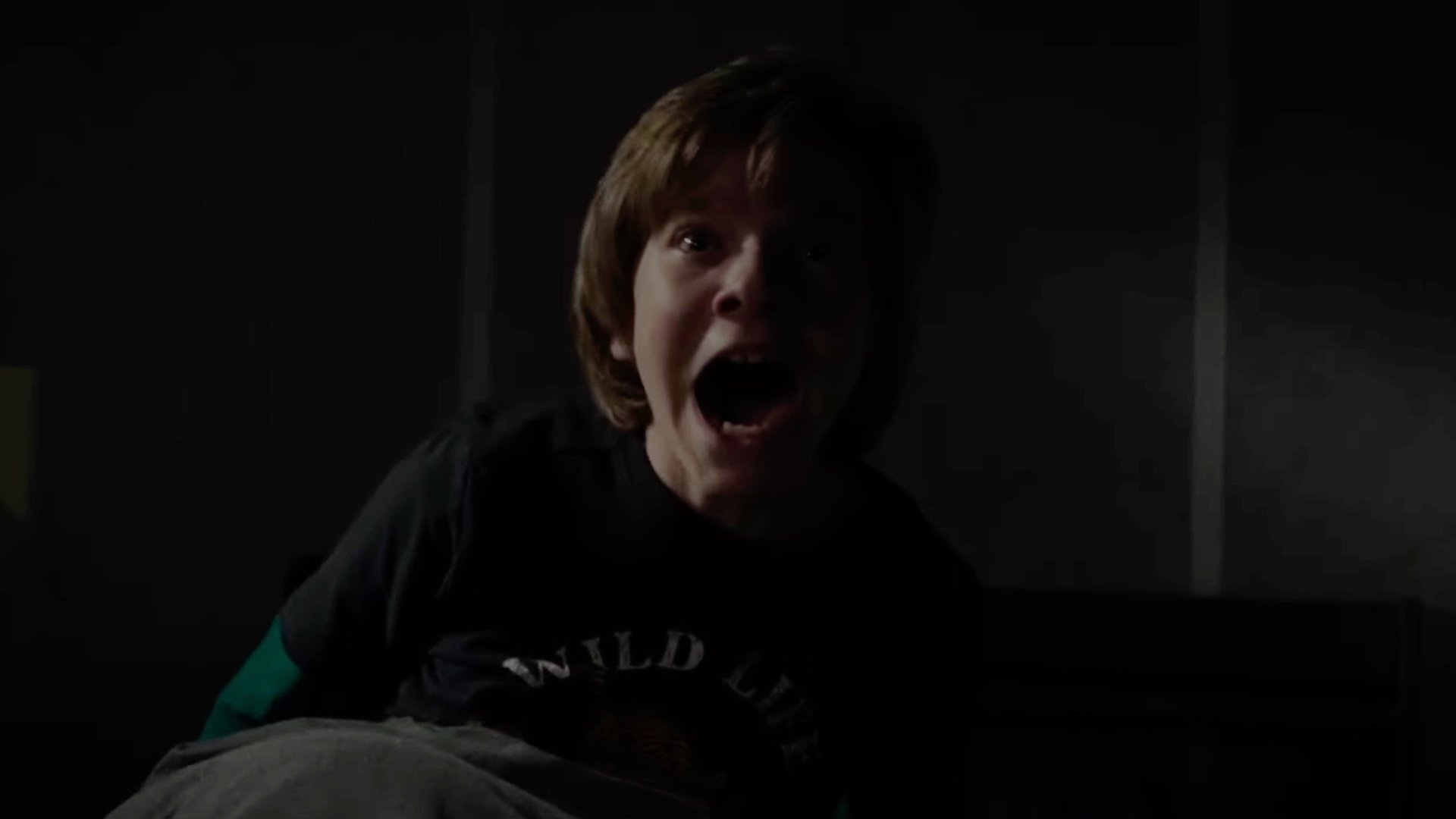
The two struggle to cope, each in their own way. Having only recently begun her life with James, Laura finds solace in old tapes of their time together—perhaps too comforting, as they lull her to sleep. She, a believably well-minded individual and partner, also had reached the point where she drinks until she collapses. Meanwhile, Isaac withdraws into his own world, filling his walls with drawings of monsters and immersing himself in the gaming console gifted by his father. His father, an architect, had a talent for drawing, and Isaac clings to these small remnants of his memory.
Yet, it’s clear that nothing truly helps either of them. Their grief deepens, and their bond deteriorates day by day. Worse, tensions escalate when a monstrous figure enters their home, intensifying the fragile dynamics between them and leaving them to question how long they can endure such a relationship stalemate.

Turnbull delivers a standout performance, portraying how grief manifests in a young boy forced to process unimaginable loss at a tender age. His innocence is as convincing as it is heartbreaking. Brown’s portrayal of Laura, the stepmother suddenly thrust into the role of a single parent, is equally impressive. Her character is written with a compassionate warmth that contrasts beautifully with Isaac’s distance, creating a dynamic that feels authentic and humanely familiar.
As Isaac grapples with his grief, he turns his inner turmoil into a physical threat—a monster that invades their once-safe space. This reflects his subconscious desire to escape the house and seek answers that make sense to a child his age. His monstrous creations, drawn from his imagination, become a misguided attempt to understand the misfortunes that have befallen him, though even this effort proves futile.

Ultimately, Daddy’s Head is not just a story of grief turned monstrous, but of two lost souls trying to make sense of an alien situation. The “monster” in the film serves as an “alien” metaphor for both Isaac and Laura’s struggles: Isaac is alien to the idea of life without his parents, and Laura is alien to the role of a single parent. The central question becomes whether they will allow these “aliens” to invade their lives or find the strength to drive them away and protect the only home they have left by unalienating themselves with each other first.
What sets this film apart is its unpredictability. One of the most terrifying scenes in this year’s horror offerings is in Daddy’s Head—completely unexpected and masterfully crafted to leave viewers dreading their own homes. The creature design and set pieces are meticulously arranged, delivering genuine nightmares.
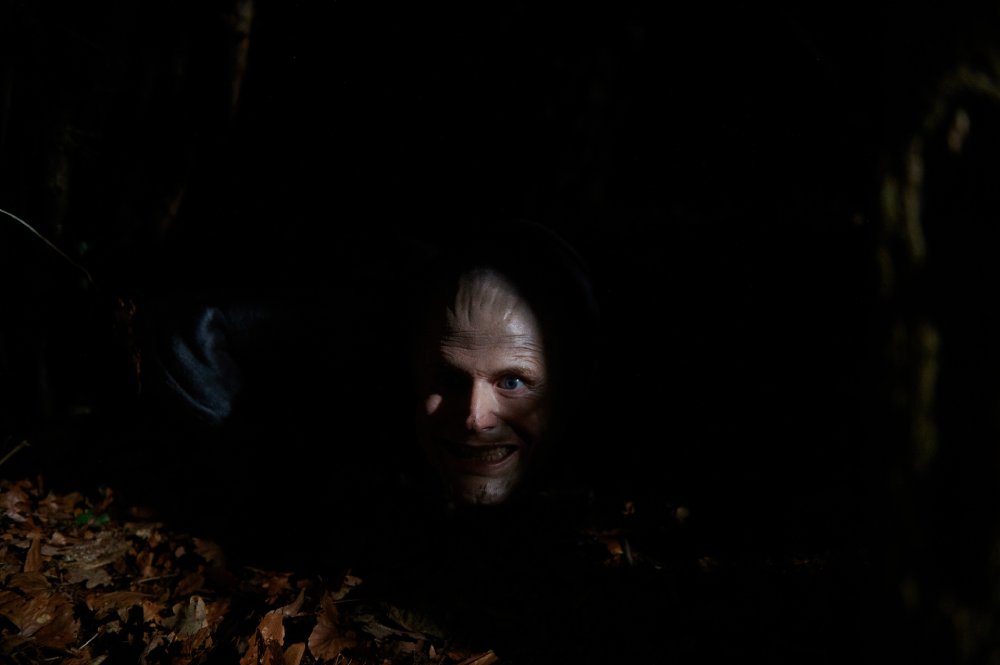
For those seeking a horror film that not only scares but also challenges viewers to confront the terrifying depths of human emotions like grief, depression, and alienation, Daddy’s Head is a must-watch. Barfoot offers a breather (ironically, it doesn’t because it will keep you choking along the way) in the genre, preparing our taste buds for more spine-chilling surprises in the year’s final quarter.

Daddy’s Head (2024) is available to stream on Shudder from October 11
More Film Reviews
Revisiting ‘Kairo’ During a Global Pandemic in the Age of Social Media
“People don’t really connect, you know.” A sentiment that is often shared among film fans about some of the most eminent artists in the industry is that they were and/or…
Idiot Boy (2023) Film Review – A Town Called Malice
Idiot Boy is a 2023 shot-on-video faux documentary written and directed by Luke De Brún, with additional writing from Dan Doyle. Beginning filming in September 2018, the film was created…
Evil Dead Rise (2023) Film Review: Maniacal Motherhood
The original electrifying Evil Dead burst onto the horror scene in 1981 and wrapped its spindly tendrils around the throat of passionate horror fans worldwide, keeping us on the edge…
Gaia (2021) Film Review: God is Real, and She’s a Fungus
Warning to those with mycophobia – this is not the film for you. Gaia is a South African ecological horror film, full of mushroom monsters, skin-crawling body horror and raving…
Párvulos (2024) Film Review – Blood is Thicker Than Water [Fantastic Fest 2024]
In the aftermath of the Omega Pandemic, a devastating global catastrophe that has turned citizens into zombie-like monsters, a teenager named Salvador has become the caretaker of his younger siblings,…
The Deep House (2021) Film Review – Drowned Secrets Disturbed
Chasing the dream of a breakout success YouTube video, two urban explorers think they’ve found the perfect location: An old French manor that wasn’t demolished before a lake was dammed….

I am a 4th year Journalism student from the Polytechnic University of the Philipines and an aspiring Filmmaker. I fancy found footage, home invasions, and gore films. Randomly unearthing good films is my third favorite thing in life. The second and first are suspending disbelief and dozing off.

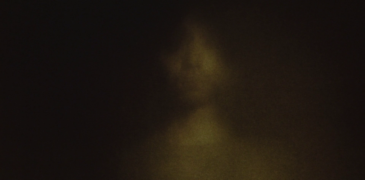


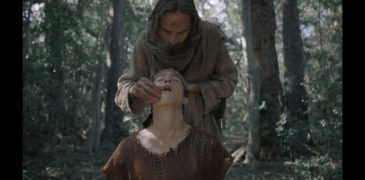
![Párvulos (2024) Film Review – Blood is Thicker Than Water [Fantastic Fest 2024]](https://www.grimoireofhorror.com/wp-content/uploads/2024/09/Parvilulos-cover-365x180.jpg)
